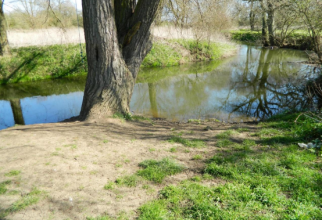Case study:Essex Healthy Headwaters River Restoration Project: Difference between revisions
(XML import) |
No edit summary |
||
| (21 intermediate revisions by 5 users not shown) | |||
| Line 1: | Line 1: | ||
{{ | {{Case study status | ||
|Approval status= | |Approval status=Approved | ||
}} | }} | ||
{{Location | {{Location | ||
|Location= | |Location=52.0017204284667, 0.58045208454132 | ||
}} | }} | ||
{{ | {{Project overview | ||
|Status= | |Status=Complete | ||
|Themes=Economic aspects, Habitat and biodiversity, Hydromorphology, Monitoring, Social benefits | |||
|Country=England | |||
|Main contact forename=Mark | |||
|Main contact surname=Iley | |||
|Contact organisation=Essex Wildlife Trust | |||
|Themes= | |Contact organisation url=www.essexwt.org.uk | ||
|Partner organisations=Essex and Suffolk Water (Northumbrian Water), Chelmer and Blackwater Catchment Partnership, Natural England, Environment Agency, Chelmer and Blackwater Navigation (Essex Waterways Ltd), Parish Councils and the Rural Communities Council for Essex, Landowners and farmers, Rivers Trust, Essex County Council, Essex Farming and Wildlife Advisory Group | |||
|Country= | |Multi-site=Yes | ||
|Project picture=Essexhealthy..png | |||
|Main contact forename= | |Picture description=site before works | ||
|Project summary=This project will aim to target catchment restoration by (i) initiating changes to agricultural land management including arable reversion to extensively managed permanent grassland and broadleaved woodland (ii) creating new wetland habitats through temporary flood storage & water retention areas on farmland (iii) enhancing and maintaining river channels (iv) upgrading channels and ditches (v) improvements to agricultural soil management (vi) awareness raising for communities (vi) monitoring to demonstrate positive change and (vii) reporting and disseminating best practice. | |||
|Main contact surname= | |||
|Contact organisation= | |||
|Contact organisation url= | |||
|Partner organisations= | |||
|Multi-site= | |||
|Project picture= | |||
|Picture description= | |||
|Project summary= | |||
}} | }} | ||
{{Image_gallery}} | {{Image_gallery}} | ||
| Line 53: | Line 23: | ||
{{Toggle_button}} | {{Toggle_button}} | ||
{{Toggle_content_start}} | {{Toggle_content_start}} | ||
{{ | {{Case study subcatchment | ||
|Subcatchment= | |Subcatchment=Colne (Gt. Yeldham - Doe's Corner) | ||
}} | }} | ||
{{Site | {{Site | ||
|WFD water body code=GB105037041260 | |||
|WFD water body name=Colne | |||
|Heavily modified water body=No | |||
|Protected species present=No | |||
|WFD water body code= | |Invasive species present=No | ||
|WFD water body name= | |||
|Heavily modified water body= | |||
|Protected species present= | |||
|Invasive species present= | |||
}} | }} | ||
{{ | {{Project background | ||
|Project started=2012/07/01 | |||
|Project completed=2015/03/01 | |||
|Total cost category=500 - 1000 k€ | |||
|Total1 cost=610 | |||
|Project started= | |Funding sources=Defra Catchment Restoration Fund | ||
|Project completed= | |||
|Total cost category= | |||
|Total1 cost= | |||
|Funding sources= | |||
}} | }} | ||
{{Motivations | {{Motivations | ||
| Line 200: | Line 55: | ||
}} | }} | ||
{{Measures | {{Measures | ||
|Bank and bed modifications measure= | |Bank and bed modifications measure=Bank reprofiling, Diversification of in-channel features, | ||
|Other technical measure=Farm infrastructure interventions | |||
|Social measures=Community involvement | |||
|Wider stakeholder / citizen engagement=Presentations to instutions, Monitoring and survey projects | |||
|Other technical measure= | |||
|Social measures= | |||
|Wider stakeholder / citizen engagement= | |||
}} | }} | ||
{{Hydromorphological_quality_elements_header}} | {{Hydromorphological_quality_elements_header}} | ||
| Line 225: | Line 68: | ||
{{Other_responses_header}} | {{Other_responses_header}} | ||
{{End_table}} | {{End_table}} | ||
{{ | {{Monitoring documents}} | ||
{{Case study monitoring documents | |||
|Monitoring document=ANG019 monitoring framework table.docx | |||
|Description=RRC Monitoring table - Essex Healthy Headwaters | |||
}} | |||
{{Monitoring_documents_end}} | {{Monitoring_documents_end}} | ||
{{ | {{Additional Documents}} | ||
{{Case study documents | |||
|File name=CRF031 Project Briefing Note - Essex Healthy Headwaters.pdf | |||
|Description=CRF Project briefing note - Essex Healthy Headwaters | |||
}} | |||
{{Additional_Documents_end}} | {{Additional_Documents_end}} | ||
{{Additional_links_and_references_header}} | {{Additional_links_and_references_header}} | ||
Latest revision as of 15:02, 6 June 2017
Project overview
| Status | Complete |
|---|---|
| Project web site | |
| Themes | Economic aspects, Habitat and biodiversity, Hydromorphology, Monitoring, Social benefits |
| Country | England |
| Main contact forename | Mark |
| Main contact surname | Iley |
| Main contact user ID | |
| Contact organisation | Essex Wildlife Trust |
| Contact organisation web site | http://www.essexwt.org.uk |
| Partner organisations | Essex and Suffolk Water (Northumbrian Water), Chelmer and Blackwater Catchment Partnership, Natural England, Environment Agency, Chelmer and Blackwater Navigation (Essex Waterways Ltd), Parish Councils and the Rural Communities Council for Essex, Landowners and farmers, Rivers Trust, Essex County Council, Essex Farming and Wildlife Advisory Group |
| This is a parent project encompassing the following projects |
Project summary
This project will aim to target catchment restoration by (i) initiating changes to agricultural land management including arable reversion to extensively managed permanent grassland and broadleaved woodland (ii) creating new wetland habitats through temporary flood storage & water retention areas on farmland (iii) enhancing and maintaining river channels (iv) upgrading channels and ditches (v) improvements to agricultural soil management (vi) awareness raising for communities (vi) monitoring to demonstrate positive change and (vii) reporting and disseminating best practice.
Monitoring surveys and results
Lessons learnt
Image gallery
|
Catchment and subcatchmentSelect a catchment/subcatchment
Catchment
Subcatchment
Site
Project background
Cost for project phases
Reasons for river restoration
Measures
MonitoringHydromorphological quality elements
Biological quality elements
Physico-chemical quality elements
Any other monitoring, e.g. social, economic
Monitoring documents
Additional documents and videos
Additional links and references
Supplementary InformationEdit Supplementary Information
| ||||||||||||||||||||||||||||||||||||||||||||||||||||||||||||||||||||||||||||||||||||||||||||||||||||||||||||||||||||||||||||||||||||||||||||||||||||||||||||||||||||||||||||||||||||||||||||||||||||||||

